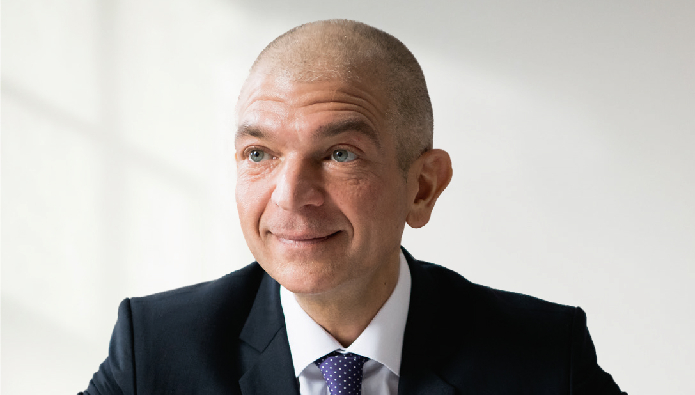Here, I check in with Dorian Gonsalves, the CEO of Belvoir Group, for his thoughts on the company’s strong performance, the Build to Rent sector, the pros and cons of franchising and where he thinks the market will be in ten years’ time.
First, some quick background. Belvoir Group is the UK’s largest high street franchise group – founded in 1995 and listed on the Alternative Investment Market (AIM), it has more than 170 branches. As well as the Belvoir brand itself, Northwood and Newton Fallowell sit within the Group.
Gonsalves, meanwhile, is a former Countrywide employee who joined the firm in 2005, before working his way up to the position of managing director by 2010. When the Group floated on the AIM in 2012, he took on the role of CEO, a job he’s held ever since.
-
Belvoir has thrived with only minor problems during the pandemic, and you’ve attributed that to your structure - what is it about your franchise structure that allowed that to happen?
Belvoir has certainly proved itself to be a pandemic-proof business, having come out of lockdown in a stronger position than ever. Our most recent trading update reported that in the ten months up to October 2020 the Belvoir Group was on target to record 24 years of unbroken turnover and profit growth.
There are several reasons for Belvoir’s success during the pandemic, but primarily it has been due to a very resilient franchise business model, exceptionally committed entrepreneurial franchisees and a dedicated team of central office staff. As a result of everyone’s efforts, Belvoir did not lose a single franchise during the lockdown, either due to health or business reasons, which is a fantastic achievement.
Throughout the pandemic, Belvoir has continued to roll out its financial services division, which is a concept that is geared entirely around franchisees being able to grow a business within a business by offering mortgages and associated practices to their clients. The Group will finish the year with 201 full-time dedicated mortgage advisors – up from 166 advisors last year, and we will have written around 12,000 mortgages.
Belvoir has proved that, regardless of what is going on economically, or any other restrictions, we can trade very well even during a financial crisis, such as that experienced in 2008-2010.
You expand through acquisitions, but why should independents become part of a franchise network given the strength of the rental market right now?
Acquisitions remain a priority for the Belvoir Group, and we recently announced the 100th acquisition of an independent agent, thanks to our unique Assisted Acquisition Programme, and the efforts of our dedicated Acquisition Team.
The number of acquisitions has been down, for obvious reasons, however the team is working on a number of sizeable acquisitions and appetite for acquisition across the franchise network remains extremely strong.
I’ve been forecasting a 20% reduction in the number of independent and corporate-owned agency branches for the last two years and Covid is only one of a number of factors that will contribute to this reduction. Other factors include under-performing corporate chains, less reliance on footfall, higher costs of operating, retirement, consolidation…the list goes on.
Lockdown was a challenging time for all business owners, but Belvoir and Northwood agents retained 90% of their lettings income throughout this period, thanks to the resilience of the franchise business model and a fantastic reputation within the industry.
Franchising has proved itself to be the most resilient and successful business model. We are receiving many enquiries from independent agents who are interested in finding out more about the Belvoir acquisition opportunity. We also have franchisees across the entire Group who are looking to expand their business through acquisition.
Build to Rent is still tiny (around 1% of the PRS) but seems favoured by government policies - what’s your view of it?
Longer-term, we view BTR as an opportunity for skilled property managers and block managers, and it is likely this is something that we may specialise in in the years to come. At the moment, the majority of BTR schemes are high-rise, high density, located in cities and town centres and the jury is out as to whether these will be ideal developments once this pandemic has passed.
We are currently seeing increasing numbers of tenants wanting to move out of town and cities, although this may only be a temporary behavioural change.
There is certainly a need for institutional investment such as BTR, as demand for renting properties is so high. It’s correct to say that BTR is still a very tiny part of the PRS and it will take a very long time for it to grow into anything more than a side-line to the main PRS.
You've been at Belvoir since 2005 - during that time, how much has the company (and the property industry more widely) changed? What's been the best and worst development?
I first became MD in 2010 and since then there have certainly been a lot of changes. In 2012, Belvoir became the first lettings agency to list on the AIM [a sub-sector of the London Stock Exchange]. Perhaps the biggest change since listing on the AIM has been for Belvoir to go from being a dedicated lettings specialist to a Group that also offers estate agency and financial services throughout the franchise network.
Belvoir began initially as a small, family-run business in 1994, launching its first franchise the following year in Moray, Scotland. Belvoir Moray is still going strong, as are many other franchises which have been with the Group for 20-plus years.
The Group now manages over 68,550 properties and reported record revenues of £19.3 million in 2019, making Belvoir the largest property franchise group in the UK.

In recent years, Belvoir plc has completed on several successful acquisitions and is now a multi-branded Group, including the Belvoir, Northwood, Newton Fallowell and Lovelle brands. In 2017 Belvoir acquired Brook Financial Services, which trades as the Mortgage Advice Bureau and in 2018 acquired MAB Gloucester, enabling franchisees to develop a financial services division within their business and continue mitigating any financial impacts of the tenant fee ban.
Of course, there have been challenges over the years. In 2007, the property crunch and subsequent recession significantly impacted on the estate agency market, but Belvoir has a strong lettings portfolio, which produces recurring income for our franchisees, reducing exposure to a decreasing sales market.
In recent years uncertainty over Brexit, and government interventions to cool the BTL market have impacted on landlord investment to a certain extent. This year the coronavirus pandemic presented a challenge like no other for business owners, but once again Belvoir has proved its resilience and ability to trade successfully in a financial crisis.
Where do you think estate agency will be by the end of the decade?
Most agents have experienced lower footfall in the last five years, but I believe that further reduced footfall will make little or no difference. Agents have already ‘adapted’ to this by means of being internet-savvy and less reliant on business generated by shopfronts.
I’m still a firm believer in shop or office-based estate and lettings agencies. To build a business that isn’t ‘just a job’, you need staff to help you operate your business. Some of our franchisees employ up to 30 people and they all need somewhere to sit and work.
If you need somewhere to operate from, i.e. an office, you may as well have signage to advertise your business – for example a shopfront with plenty of office space. These are not expensive, and I suspect shops and office rents will become cheaper over the next two years.
Online-only agencies have not impacted on the lettings sector due to the labour-intensive nature of the work involved. High street agents will continue to develop and improve their online capabilities, but it’s less easy for an online agent to develop a truly local network with customer-focussed staff at ground level.
Franchising will continue to grow, and in previous recessions franchising has attracted more people due to uncertainty in the jobs market. We’ve proved that franchising is highly resilient against economic downturns as it’s agile, efficient, and franchises are operated by highly motivated people.
What are the major plus points (and downsides) of the franchise model?
Being an independent agent is very challenging and can actually be quite a lonely experience in many ways. I think probably never more so than during lockdown when the government was announcing new rules and legislation at lightning speed.
It was definitely a challenge to keep up to date with everything and remain compliant, and it must have been even more difficult for an independent agent to try and do this. At Belvoir, we made an early decision to pour more resources into our franchise support team to enable them to process all the changes, work out what they meant for our franchisees, adopt a business position on this and then communicate everything ASAP to the Group.
Independent agents can also benefit from being associated with a reputable, well-known franchise brand, with enhanced levels of marketing and IT support. Our senior management team is constantly working on and developing new ideas to help franchisees develop additional income streams and achieve maximum business growth.
Although franchisees are required to pay the franchisor a percentage of their turnover, I believe this is far outweighed by all of the advantages they gain in terms of business potential, support, branding and opportunities for growth. They can also take advantage of an efficient exit strategy when they wish to sell the business.
You have a fairly limited sales presence, when compared with the rental sector - is this an area of growth you are actively targeting?
We sold over 10,000 properties this year and we will have written over 12,000 mortgages which is quite extraordinary considering that when we listed on AIM in 2012 we had no involvement in sales or financial services.
We definitely see these two aspects of the business as significant areas of future growth. We are actively encouraging and supporting our franchisees who in the past may have been traditionally more geared towards lettings to gain skills in property sales so that they are able to benefit from trends in both markets.
The growth in first-time buyers (FTBs) is good news for the sales market, as it fuels the rest of the home-buying and selling market. With Help to Buy being restricted to FTBs from April 2021 and ending in March 2023, this could impact on FTB growth, however Boris Johnson recently announced news of further initiatives to be introduced next year that will be aimed specifically at increasing home ownership, and we await further details of these.
-
Many thanks for the detailed answers, Dorian. In the next part of this series, I’ll be chatting to Zoopla’s CEO Charlie Bryant about portals, Covid responses, the influence of tech and 2021 predictions.
*Nat Daniels is CEO of Angels Media, publishers of Estate Agent Today and Letting Agent Today. You can follow him on Twitter @NatDaniels. He also writes a regular column – Property Natter – which appears in the Weekend Features section every two weeks.



















%20A%20property%20tale%20for%20our%20times.png)








Join the conversation
Be the first to comment (please use the comment box below)
Please login to comment